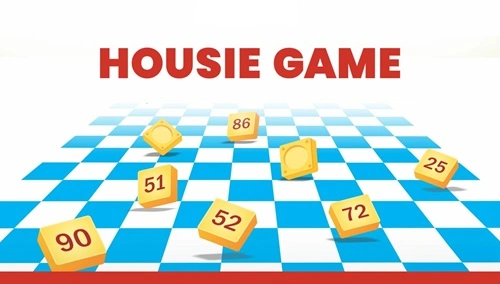Housie, also known as Tambola, is a popular game in India, often enjoyed in social gatherings, clubs, and online platforms. While the game is widely played, its legality, especially in the context of online platforms and monetary rewards, can be a matter of concern. This article delves into the legal framework surrounding the game of Housie in India, distinguishing between its traditional and online formats, and offers insights into its regulatory landscape.
What is Housie?

Housie is a number-based game similar to Bingo, where players are given tickets with numbers printed on them. A caller announces numbers randomly, and players mark them off on their tickets. The objective is to complete specific patterns such as lines, corners, or a full house to win prizes.
Traditionally, the game has been a staple at community events, family gatherings, and charity fundraisers. However, with the advent of online gaming platforms, Housie has transitioned into the digital realm, often involving monetary stakes.
The Legal Framework for Housie in India
India’s legal system classifies games into two categories: games of skill and games of chance. This distinction plays a crucial role in determining the legality of a game.
1. Games of Skill vs. Games of Chance
- Games of Skill: These involve a significant degree of knowledge, strategy, and expertise. Such games are generally considered legal.
- Games of Chance: These rely predominantly on luck or random outcomes and are often classified as gambling, which is restricted or banned in many states.
2. Public Gambling Act, 1867 This central legislation prohibits gambling in public spaces but does not explicitly address games of skill or online gaming. States have the authority to create their own laws, leading to varied interpretations.
3. State-Level Laws
- States like Telangana, Andhra Pradesh, and Tamil Nadu have stringent laws against games involving monetary stakes, even online.
- States like Goa, Sikkim, and Nagaland have more liberal approaches, allowing regulated gaming activities under licenses.
Where Does Housie Stand?
The legality of Housie depends on whether it is categorized as a game of skill or chance. Traditionally, Housie has been viewed as a game of chance since the numbers are drawn randomly, with no influence of player strategy. This places it closer to gambling in the eyes of the law.
- Traditional Housie When played at social events or fundraisers without monetary stakes, Housie is typically not considered illegal. The game is seen as a form of entertainment rather than gambling.
- Online Housie with Monetary Stakes Online platforms offering Housie with real money involvement are subject to stricter scrutiny. In states where gambling laws prohibit games of chance with monetary stakes, such platforms may be deemed illegal.
- Housie for Charity When Housie is played for fundraising purposes, it may be considered exempt from gambling laws in certain cases, provided the event complies with local regulations.
Risks and Considerations for Online Housie
- Legal Ambiguity The lack of a unified national law for online gaming creates a gray area for games like Housie. Players must be aware of their state laws to avoid legal complications.
- Unregulated Platforms Many online platforms offering Housie operate without proper licenses or regulatory oversight, raising concerns about fairness and transparency.
- Addiction and Financial Risks The inclusion of monetary stakes can lead to addictive behavior, with some players risking more than they can afford to lose.
- Data Privacy Concerns Players must ensure the platform they use adheres to strict data protection policies to safeguard their personal and financial information.
How to Play Housie Legally and Responsibly
If you wish to enjoy Housie while staying within legal boundaries, here are some tips:
- Understand Local Laws Familiarize yourself with the gaming laws in your state to determine whether playing Housie with monetary stakes is allowed.
- Choose Licensed Platforms Opt for platforms that are licensed and regulated to ensure a safe and fair gaming experience.
- Limit Monetary Involvement If you are playing Housie with real money, set strict limits on your spending to avoid financial stress.
- Avoid Addiction Treat Housie as a form of entertainment, not a way to make money.
Conclusion
The legal status of Housie in India hinges on its format and the involvement of monetary stakes. While traditional, non-monetary Housie is generally considered legal and a harmless pastime, online Housie with real money involvement operates in a legal gray area, depending on state laws. Players must exercise caution, understand the local regulations, and choose reputable platforms to ensure a safe and enjoyable gaming experience. As the online gaming industry continues to grow, clearer regulations may provide better clarity for both players and operators in the future.

